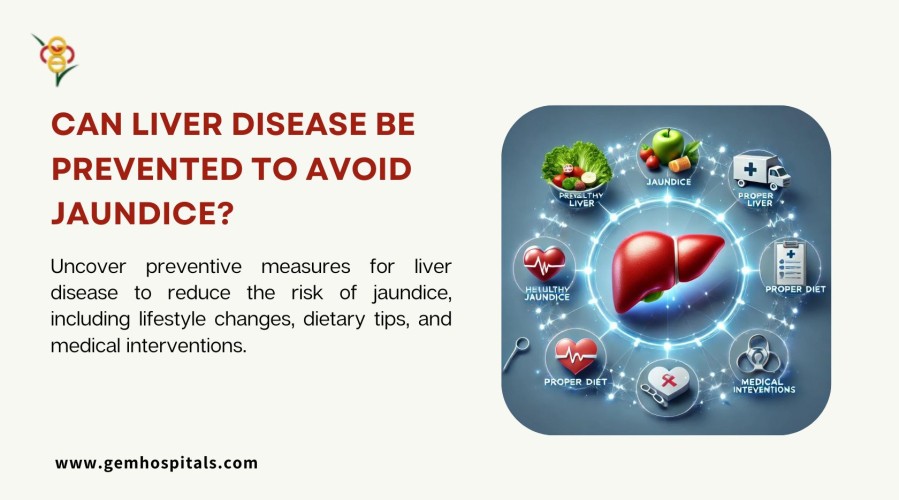Learn effective solutions for digestive problems with expert tips to improve gut health, reduce discomfort, and maintain a healthy digestive system.
Can Liver Disease Be Prevented to Avoid Jaundice?

Liver disease is a serious health condition that can lead to jaundice, a yellowing of the skin and eyes. However, there are steps you can take to help prevent liver disease and, consequently, avoid jaundice. This blog will provide you with practical tips and insights on how to maintain a healthy liver.
Understanding Liver Disease and Jaundice
Liver disease encompasses a range of conditions that affect the liver's ability to function properly. These conditions include hepatitis, fatty liver disease, cirrhosis, and liver cancer. Jaundice occurs when the liver cannot process bilirubin, a yellow pigment, effectively, leading to its buildup in the body.
Healthy Diet for Liver Health
Maintaining a healthy diet is crucial for liver health. A balanced diet can help prevent liver disease and keep your liver functioning optimally.
- Eat Plenty of Fruits and Vegetables: These are rich in antioxidants and nutrients that support liver health.
- Choose Whole Grains: Whole grains like brown rice, oats, and whole wheat provide essential nutrients and fiber.
- Avoid Processed Foods: Processed foods are often high in unhealthy fats, sugars, and salts, which can harm the liver.
- Limit Alcohol Intake: Excessive alcohol consumption is a major cause of liver disease. Drink in moderation or avoid alcohol altogether.
Regular Exercise
Regular physical activity helps maintain a healthy weight, reduces liver fat, and improves overall liver function. Aim for at least 30 minutes of moderate exercise, such as walking, swimming, or cycling, most days of the week.
Avoiding Risky Behaviors
Certain behaviors can increase the risk of liver disease. It's important to be aware of these and take steps to avoid them.
- Do Not Share Needles: Sharing needles for drugs, tattoos, or piercings can spread hepatitis.
- Practice Safe Sex: Hepatitis B and C can be transmitted through sexual contact. Use condoms and practice safe sex.
- Avoid Exposure to Toxins: Limit exposure to chemicals, pesticides, and other toxins that can harm the liver.
Vaccinations
Vaccinations can protect against certain types of liver disease. Hepatitis A and B vaccines are available and recommended, especially for those at higher risk.
Regular Health Check-ups
Regular visits to your healthcare provider can help detect liver issues early. Routine blood tests can monitor liver function and catch problems before they become severe.
Managing Medications and Supplements
Some medications and supplements can harm the liver if not used correctly. Always follow the prescribed dosages and consult your doctor before taking new medications or supplements.
Point-by-Point: Practical Tips for Liver Health
- Stay Hydrated: Drink plenty of water to help your liver flush out toxins.
- Limit Sugar Intake: High sugar consumption can lead to fatty liver disease.
- Be Careful with Pain Relievers: Over-the-counter pain relievers like acetaminophen can cause liver damage if taken in excess.
- Avoid Contaminated Food and Water: These can carry viruses that cause hepatitis.
- Maintain a Healthy Weight: Obesity is a major risk factor for liver disease.
Schedule an Appointment
Preventing liver disease and jaundice requires a proactive approach to your health. By following these tips, you can help protect your liver and overall well-being. If you have any concerns or symptoms related to liver disease, don't hesitate to schedule an appointment with GEM Hospital. Our specialists are here to provide you with the care and support you need to maintain a healthy liver.
Blogs & Article
Explore current research trends in digestive health, including new treatments, advanced diagnostics, and innovations improving gut health and patient care.
Discover common digestive health myths and the real facts. Learn simple tips to improve gut health and maintain better digestion for a healthier life.


